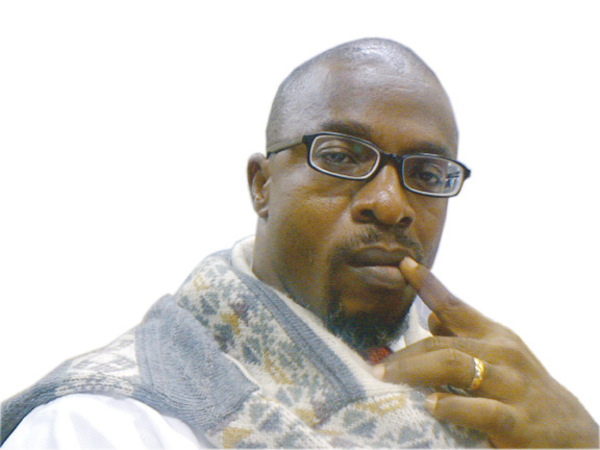Do you think democracy is expensive? Try Autocracy, By Uddin Ifeanyi
There are two (admittedly related) ways to assess the Buhari government's eight years in office. The first, and the simplest, is to question the performance of the government in place in relation to the promises it made during the roundups, while its measure of the frustration of the electorate with the inertia that had ended up define Goodluck Jonathan's presidency, suggested he could get away with promising people just about anything if they only wanted to vote.
There was good reason to believe that it wouldn't take a genius to solve the various problems besetting the economy, once the silly bounty the markets demanded to compensate for the ignorance of the government in place was removed . At least the fundamentals of the economy were solid. And particularly on the homeland security challenges facing the Jonathan administration, who better to address them than a former military leader who in his previous incarnation had resolutely suppressed the Maitatsine cult?
The second measure against which the current federal government can be measured is evidence of its net impact on the country's outcomes after taking office. Politically and socially, the seams of the country have never been so threadbare. A deteriorating security situation, as non-state actors shape a growing part of the national narrative, is pulling strings across many seams of the country. As if that were not enough, a clan presidency led to an even faster unraveling of the fabric of the state. As an economy, the country is a farce ― torn between control by an increasingly inept public bureaucracy and susceptibility to whimsical thefts from top public officials.
However you approach the facts, the Buhari administration does not fare well by any measure. Still, it is not aberrant on this template. Eight years ago, for example, the popular sentiment was that having dug the bottom of a deep ravine, it would be difficult for any government to underperform Goodluck Jonathan.
Stellar short-lived episodes aside, successive Nigerian governments have found ways to consistently lower the bar for success. This process has become so excruciating that, while in office, the leaders of our governments invite us to remember their underperformance, telling us with relish how we will expect them long after they are gone. In preparation for next year's general election, there is no sobering truth that the slate of candidates for elective office, especially that of the president, has never been so sloppy or sleazy.
In doing all of this against the challenges we face as a country, invariably the people whose job it is to think about these issues have challenged our favorite political organization. Maintaining the three branches of the state at all three levels of government is increasingly seen as too costly, especially given the poor state finances. Furthermore, the politicking that representative democracy calls for in a multi-ethnic, multi-religious state means that the time to market for critical decisions is too long.
Is this a sufficient argument for a dictatorship? On the positive side, an Alexander III of Macedon would cut through our litany of problems. On paper, a dictatorship focused on correcting our ills would be cheaper and have faster response functions. But much of the appeal of the "philosopher king" is mythical - fables of a time when oracles set tasks like untying the Gordian knot to help deserving communities winnow rulers.
Almost always, authoritarian regimes leave little room for dissent. The prisons are overflowing. Exile becomes the only form of expression of different points of view. This is all part of a process that ends up merging the state and its supreme ruler. Reminder of the 43 years of presidency of Equatorial Guinea by Teodoro Obiang Nguema Mbasogo, 80 years old. Even where the construction of a benign dictator is envisaged, the question remains: "How to choose such one"? And when we're dealing with a malign, "How can we take it away (they're rarely women, though)"?
In Africa, these are not academic questions. We've run the gamut from aspiring dictators (Joseph Rao Kony, Foday Saybana Sankoh, etc.) to actual dictatorships (Idi Amin Dada Oumee, Jean-Bédel Bokassa, Sani Abacha, etc.). Our leaders may not have learned the lessons of these experiences. But their failure should strengthen our resolve to have representative and accountable governments.

Uddin I...

There are two (admittedly related) ways to assess the Buhari government's eight years in office. The first, and the simplest, is to question the performance of the government in place in relation to the promises it made during the roundups, while its measure of the frustration of the electorate with the inertia that had ended up define Goodluck Jonathan's presidency, suggested he could get away with promising people just about anything if they only wanted to vote.
There was good reason to believe that it wouldn't take a genius to solve the various problems besetting the economy, once the silly bounty the markets demanded to compensate for the ignorance of the government in place was removed . At least the fundamentals of the economy were solid. And particularly on the homeland security challenges facing the Jonathan administration, who better to address them than a former military leader who in his previous incarnation had resolutely suppressed the Maitatsine cult?
The second measure against which the current federal government can be measured is evidence of its net impact on the country's outcomes after taking office. Politically and socially, the seams of the country have never been so threadbare. A deteriorating security situation, as non-state actors shape a growing part of the national narrative, is pulling strings across many seams of the country. As if that were not enough, a clan presidency led to an even faster unraveling of the fabric of the state. As an economy, the country is a farce ― torn between control by an increasingly inept public bureaucracy and susceptibility to whimsical thefts from top public officials.
However you approach the facts, the Buhari administration does not fare well by any measure. Still, it is not aberrant on this template. Eight years ago, for example, the popular sentiment was that having dug the bottom of a deep ravine, it would be difficult for any government to underperform Goodluck Jonathan.
Stellar short-lived episodes aside, successive Nigerian governments have found ways to consistently lower the bar for success. This process has become so excruciating that, while in office, the leaders of our governments invite us to remember their underperformance, telling us with relish how we will expect them long after they are gone. In preparation for next year's general election, there is no sobering truth that the slate of candidates for elective office, especially that of the president, has never been so sloppy or sleazy.
In doing all of this against the challenges we face as a country, invariably the people whose job it is to think about these issues have challenged our favorite political organization. Maintaining the three branches of the state at all three levels of government is increasingly seen as too costly, especially given the poor state finances. Furthermore, the politicking that representative democracy calls for in a multi-ethnic, multi-religious state means that the time to market for critical decisions is too long.
Is this a sufficient argument for a dictatorship? On the positive side, an Alexander III of Macedon would cut through our litany of problems. On paper, a dictatorship focused on correcting our ills would be cheaper and have faster response functions. But much of the appeal of the "philosopher king" is mythical - fables of a time when oracles set tasks like untying the Gordian knot to help deserving communities winnow rulers.
Almost always, authoritarian regimes leave little room for dissent. The prisons are overflowing. Exile becomes the only form of expression of different points of view. This is all part of a process that ends up merging the state and its supreme ruler. Reminder of the 43 years of presidency of Equatorial Guinea by Teodoro Obiang Nguema Mbasogo, 80 years old. Even where the construction of a benign dictator is envisaged, the question remains: "How to choose such one"? And when we're dealing with a malign, "How can we take it away (they're rarely women, though)"?
In Africa, these are not academic questions. We've run the gamut from aspiring dictators (Joseph Rao Kony, Foday Saybana Sankoh, etc.) to actual dictatorships (Idi Amin Dada Oumee, Jean-Bédel Bokassa, Sani Abacha, etc.). Our leaders may not have learned the lessons of these experiences. But their failure should strengthen our resolve to have representative and accountable governments.

Uddin I...
What's Your Reaction?






















